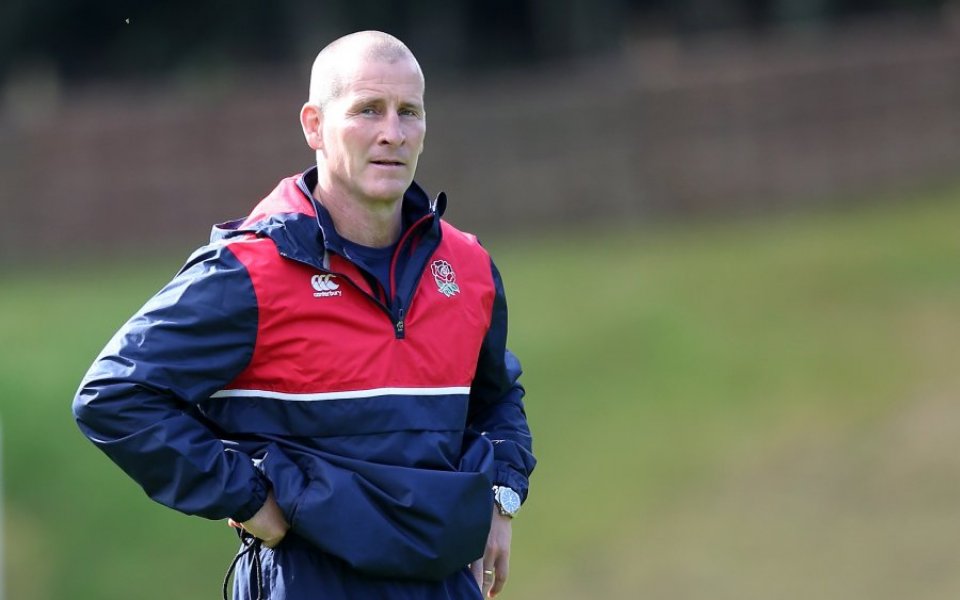Eddie Jones: Why England Rugby’s new head coach could benefit from keeping Stuart Lancaster involved

Eddie Jones is the exciting, big name appointment to head coach many England fans were hoping for – but could there still be a role for Stuart Lancaster in the England set up? Heads were always going to roll after England's World Cup results and the level of investment in the team, but we need to think long term too.
The All Blacks won the last two World Cups because they blended a fierce warrior spirit, driven by experienced senior players with a strong team culture which takes pride in the badge.
Finalists Australia and New Zealand averaged 65 caps per player. England only had only half that so selecting inexperienced players meant Lancaster had a disadvantage here from the off.
The team culture that Lancaster inherited was making mistakes on the field and off. By bringing back the respect for the shirt and the fans they represent, Lancaster built a solid foundation for the next level of team performance.
Read more: England follow southern hemisphere coaching trend
The warrior mindset is something which is developed through the system and is honed by the head coaches and senior players. Could Stuart Lancaster’s strength be in developing the wider character of the team culture and individuals, leaving a new ‘super coach’ like Jones to run their finishing school and focus on results?
I interviewed Stuart Lancaster last year for Sporting Edge so that we could share his leadership secrets across our coach education and executive leadership programmes. His authenticity and love for coaching rugby shone through. When he joined he England set up originally, leading the Saxon’s squad he admitted it “was a big step and I was prepared. I was still apprehensive obviously the first time you do it but you know you go in there with the confidence of 10, 12, 15 years of coaching behind you and that’s what gets you the early start and then you creditability and your self-belief grow alongside it.” And when he moved up to the senior team he says while “the profile was a bit daunting but the actual coaching, I backed my own philosophy and was confident.”
So we had a coach who has great integrity, had the confidence required, an enormous passion to help people learn, with knowledge of the talent pipeline.
The next great challenge Stuart faced was to reconnect the pride of playing for the badge. England Rugby is not the only team that faces this issue amidst the commercial storms and short term gains of professional sport but his approach was spot on. He told us “the first thing I did was write to the parents of the players to ask them to write back to me with what it meant to see their son playing for England. I got them also to write to 5 people that helped their son on their journey to be an England player and without the players knowing I collected these into certificates, presented it to the players and I said this is what playing for England means. To actually play for the shirt. Play for something more, for your teammates, your families or actually for the England shirt and the history which surrounds it.” This is directly in line with the All Blacks philosophy of playing for the jersey but one small ingredient was missing – the golden outcome.
Ultimately England didn’t perform but his philosophy is that leaders need to be ultimately accountable; “You’ve been given a leadership role so take the responsibility of being a leader and deal with it.” He has been true to his word and has stepped down.
Read more: England branded "desperate" as they close in on Jones
Now he is out of the goldfish bowl and his replacement has been announced these will be lonely days for Lancaster as everyone washes their hands of a failed regime. But we should look deeper than this at the quality of the people involved and look at where their skills could be reinvested.
A key lesson we hear from all the leaders we interview, whether in sport, business or science, is that failure and the associated humiliation can often be the best teacher. Lancaster failed this time, but in doing so will have developed unique experience that he can learn from and adapt for the future. While England Rugby needed to recruit an internationally renowned winning coach to make statement of ambition, Jones will still need a pipeline of players coming through the system who respect the game and what it means to wear the shirt.
This is where Lancaster’s unique experience and approach to leadership could help our next crop of talented players in the formative years of their careers.